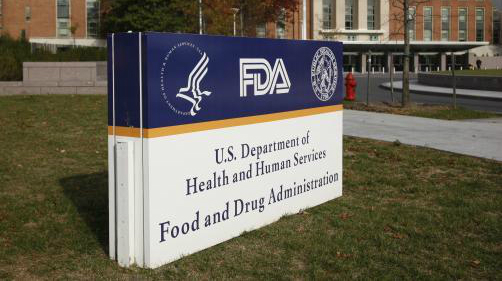Digital health round-up: FDA digital unit on track

A round-up of this week’s digital health news. Marco Ricci reports.
So far, so good for FDA digital unit
The FDA is in the process of setting up a digital health unit within its Center for Devices and Radiological Health (CDRH). It is intended to be the agency's lead for evaluating new digital health technology being brought to the market.
The unit aims to assist the development of software and digital health expertise to aid in pre-market submissions for innovative digital solutions, and decide whether a new device should be classified as a medical device or not.
The healthcare market has long needed a single unit of its kind as digital innovations continue to outgrow regulatory guidelines and technology companies like Google and Apple switch their focus to the sector.
The FDA associate director of digital health, Bakul Patel told Wired this week that his division is expanding.
[caption id="attachment_28280" align="alignnone" width="300"] The FDA's digital chief Bakul Patel[/caption]
The FDA's digital chief Bakul Patel[/caption]
Patel is in the process of hiring 13 full-time positions, and will then look to overhaul the FDA's existing view on digital health, speeding up the process for innovation to make it to market.
Patel drew an analogy with airport security measures in the US, whereby trusted companies could get their solutions to market quicker whilst those with a poor record would be subject to vetting.
“The idea is to get safe products to market faster, by having people compete on excellence rather than compliance,” he told Wired.
He added: “We’re headed toward a zero code world, where AI writes it for you or you just say what you want and natural language processing takes care of the rest. The pace will be tremendously faster than what we’re seeing today. The question is, how do we align our regulations to that radically different development timeline?”
The news of the unit being on track will be reassuring to those who thought a new administration could lead to complications for the digital health industry. Plans from President Trump to repeal the Affordable Care Act - and the health technology provisions within it - have raised industry fears. Those concerns were then compounded through recent efforts from Department of Health and Human Services Secretary Tom Price to enforce a doubling of FDA medical product user fees.
However, even these obstacles are unlikely to hold back the wave of new innovation in digital health, which is seeing high levels of investment, both from established medical device giants such as Johnson & Johnson and Medtronic, as well as start-ups such as Bigfoot Biomedical.
Otsuka and Proteus try again with 'digital pill'
One such digital innovation trying to make it to market is Otsuka and Proteus' digital medicine combination.
This brings together Proteus' ingestible sensor and Otsuka's already approved antipsychotic Abilify and aims to improve compliance in mental health patients which, because of their conditions, is difficult to achieve.
However, the device was rejected last year by the FDA due to concerns over safety, effectiveness and data.
The companies announced the device was refiled this week, and expect a decision from the FDA by the end of the year.
Owlstone establishes advisory board
Hot on the heels of recent investment from Aviva and a partnership with Mayo Clinic, Owlstone Medical has appointed Professor Sir Bruce Ponder as a member of a newly established Scientific Advisory Board.
Creator of a potentially game-changing breathalyser, the UK-based firm will now be provided with fresh clinical expertise and research perspectives as the company looks to expand.
Formerly known as ReCIVA, the Breath Biopsy is currently being tested as a diagnostic and screening tool in lung and bowel cancer, as well as a patient stratification tool for asthmatics.
Ponder currently serves as the Emeritus Professor of Oncology at the University of Cambridge and was the inaugural director of the Cancer Research UK Cambridge Institute.
His knighthood came in 2008 for Services to Medicine and in 2013, he was awarded the Cancer Research UK Lifetime Achievement Prize.
He has been involved in several landmark oncology studies, from discovering key cancer predisposition genes to advancing understanding of how cancer develops. He is also responsible for the setting up of one of the first specialist clinics for families with cancer.
“There is a great need to detect cancer earlier, and I strongly believe that Owlstone Medical’s technology enabling non-invasive diagnosis through breath can make a big difference in our approach to cancer screening," said Ponder. "I am excited to be contributing to the growth and future direction of Owlstone Medical.”
Also in the news:
- Apple developing Watch-based blood glucose tracker
- Nokia, Kantar collaborate for diabetes database project
- Orbita, ERT seek to improve voice-first data capture
- AI-discovered candidates show promise in ALS
About the author:
Marco Ricci is Staff Writer at pharmaphorum. Contact him at: marco.ricci@pharmaphorum.com or on Twitter @pharmaphorum_MR











